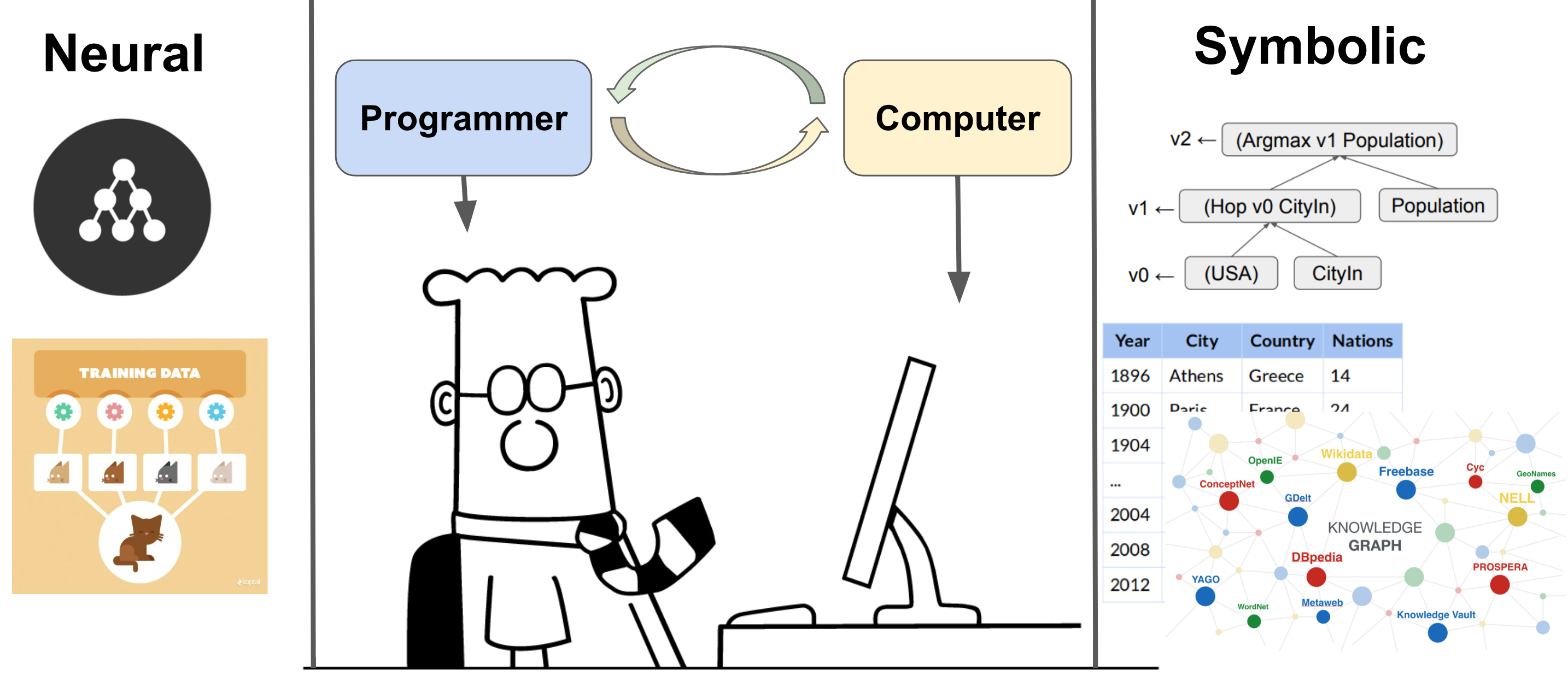Neural Symbolic Machines: Learning Semantic Parsers on Freebase with Weak Supervision
Harnessing the statistical power of neural networks to perform language understanding and symbolic reasoning is difficult, when it requires executing efficient discrete operations against a large knowledge-base. In this work, we introduce a Neural Symbolic Machine, which contains (a) a neural "programmer", i.e., a sequence-to-sequence model that maps language utterances to programs and utilizes a key-variable memory to handle compositionality (b) a symbolic "computer", i.e., a Lisp interpreter that performs program execution, and helps find good programs by pruning the search space. We apply REINFORCE to directly optimize the task reward of this structured prediction problem. To train with weak supervision and improve the stability of REINFORCE, we augment it with an iterative maximum-likelihood training process. NSM outperforms the state-of-the-art on the WebQuestionsSP dataset when trained from question-answer pairs only, without requiring any feature engineering or domain-specific knowledge.
PDF Abstract ACL 2017 PDF ACL 2017 Abstract
